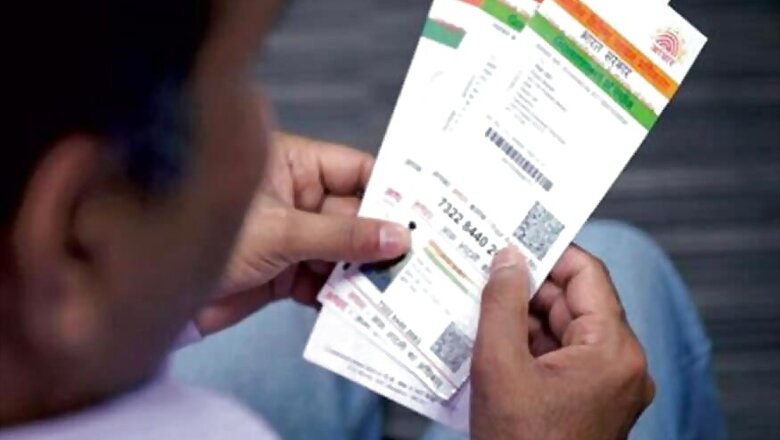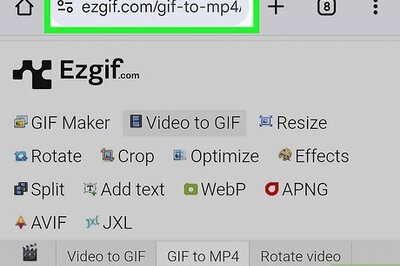
views
New Delhi: Attorney General KK Venugopal on Wednesday told the Supreme Court that data collected for Aadhaar was secure behind walls that are 13 feet high and five feet thick.
Arguing that the scheme was a “serious effort to end corruption” and not a fly-by night scheme to score brownie points, the top government lawyer said that all the details, including biometric data, are being kept at a complex in Manesar, near Delhi.
The Attorney General even offered to show the five-judge bench hearing a clutch of petitions against Aadhaar a four-minute video of the complex by the CEO of UIDAI, the body that collects the information.
Venugopal also stated that the CEO has a “PhD in Computer Science” and could answer all queries of the bench on issues like surveillance, data security and exclusion in a power point presentation.
The bench led by Chief Justice Dipak Misra and also comprising Justices A K Sikri, A M Khanwilkar, D Y Chandrachud and Ashok Bhushan, asked Venugopal to submit the details of the presentation in "word format".
“If your only goal is identification, then there are less invasive means to ensure identification (of citizens). Where is the necessity to aggregate and centralise the data," the bench asked the Centre.
The bench then gave the example of Singapore and said every person there has to get a chip-based ID card and his or her personal information remains with the person and not with the government authorities.
The Attorney General said "all this will be explained by the CEO of the UIDAI in his presentation tomorrow and moreover, aggregation of data is not possible in Aadhaar".
At the outset, Venugopal, whose turn to argue came on the 20th day of the marathon hearing, said the CEO's presentation would clear doubts including the technical ones about the Aadhaar scheme.
The petitioners have raised the issue of "privacy, anonymity, dignity, surveillance, aggregation, presumptive criminality, unconstitutional conditions, absence of a law, security", the bench said.
Venugopal said that Article 21 (right to life) has two aspects, one deals with rights like Right to Food and Right to Education and the other pertains to Freedom of Conscience and Right to Privacy.
The question is which aspect will prevail, he said, adding that the fundamental rights like the Right to Life should prevail over Right to Conscience and Privacy.
But Justice Chandrachud said this argument would go against the spirit of the Supreme Court’s privacy judgment. Venugopal clarified that he was not saying that privacy rights should not be protected, but there was a need to strike a balance.
He also quoted former Prime Minister Rajiv Gandhi to put forth its arguments supporting the Aadhaar scheme.
"A former Prime Minister of this country (late Shri Rajiv Gandhi] has gone on record to say that out of one rupee spent by the Government for welfare of the downtrodden, only 15 paisa thereof actually reaches those persons for whom it is meant. It cannot be doubted that with UID/Aadhaar much of the malaise in this field can be taken care of," the AG said.
Venugopal said Aadhaar has effectively taken care of the issue of ghost beneficiaries of welfare schemes, besides fake cards for ration, BPL quota and PAN.
It becomes the Government's duty in a welfare state to come out with various schemes which not only take care of immediate needs of the deprived class but also ensure that adequate opportunities are provided to such persons to enable them make their lives better, economically and socially, Venugopal said.
















Comments
0 comment